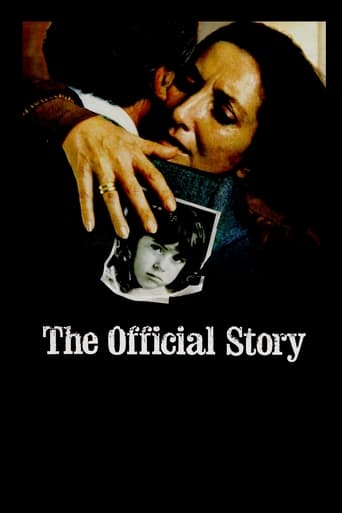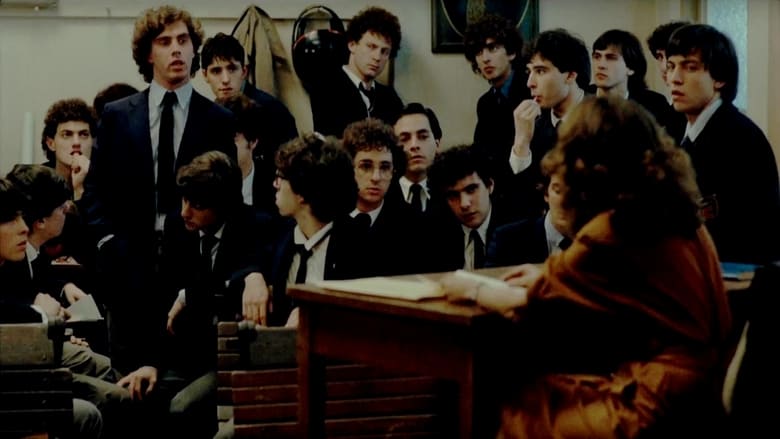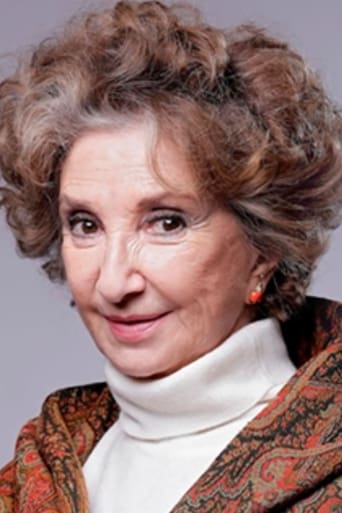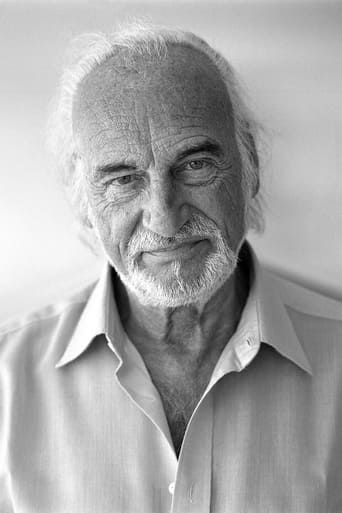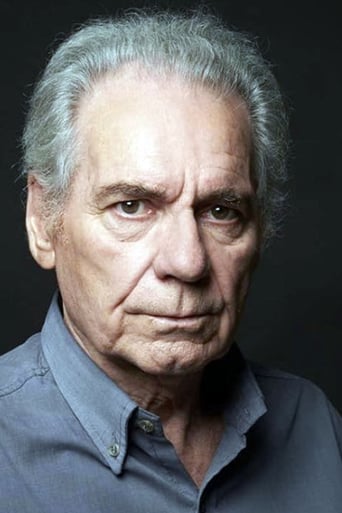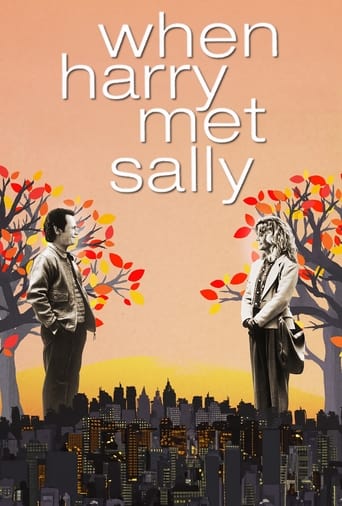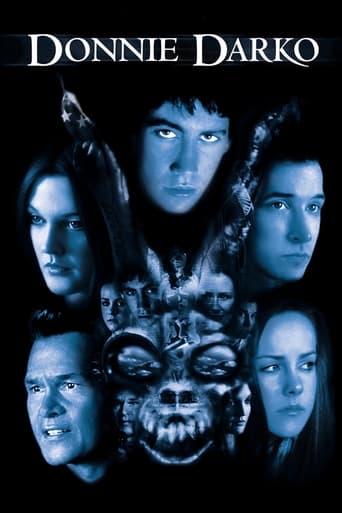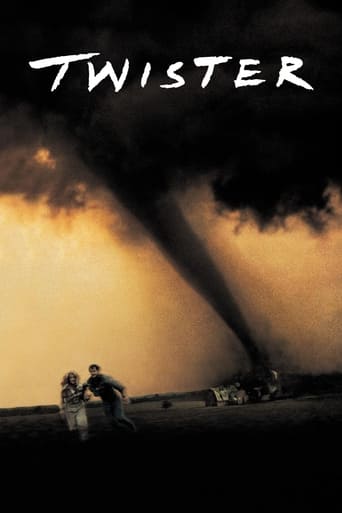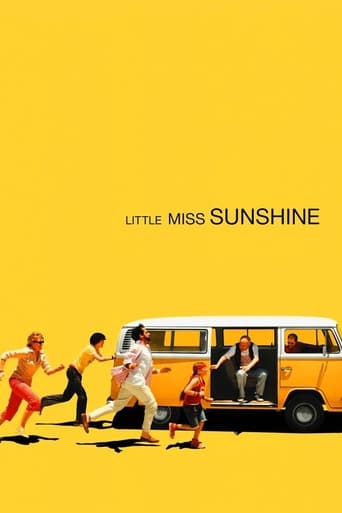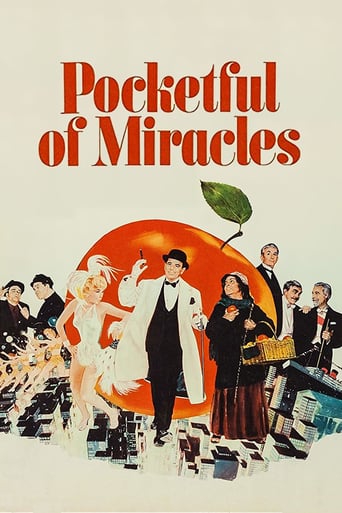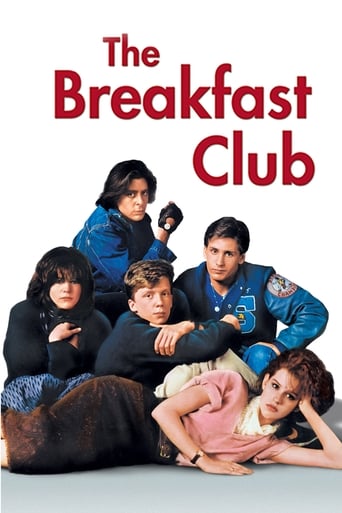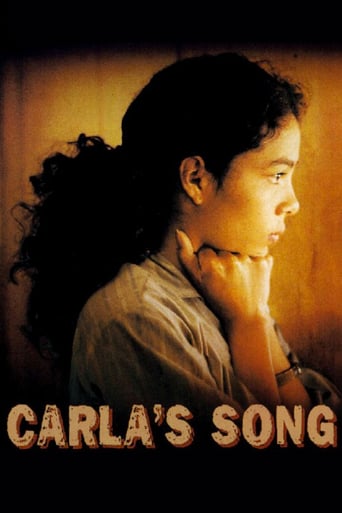The Official Story (1985)
Buenos Aires, Argentina, 1983. In the last and turbulent days of the military dictatorship, Alicia, a high school history teacher, begins to ask uncomfortable questions about the dark origins of Gaby, her adopted daughter.
Watch Trailer
Cast


Similar titles
Reviews
Overrated
For all the hype it got I was expecting a lot more!
Fun premise, good actors, bad writing. This film seemed to have potential at the beginning but it quickly devolves into a trite action film. Ultimately it's very boring.
For having a relatively low budget, the film's style and overall art direction are immensely impressive.
This film is intriguing and emotional. The Official Story tells of a woman who is searching for information about the unknown origins of her adopted daughter. The title itself suggests a lack of truth in regards to the history and events of Argentina. There is an "official story" that Alicia has contently lived with her whole life, but now begins to question the validity of it when she realizes that things aren't as they have always seemed. The irony of a history professor who isn't aware of her own past is interesting and a bit frustrating. The character development of Alicia throughout the movie is impressive. The audience is introduced to Alicia as a privileged upper-class woman who hasn't a care in the world, but who then slowly comes to realize the horrors of her current society and begins to question everything. I was impressed by Alicia's strength and determination to search out the truth despite all the obstacles that she faces.
Consider the possibility that many of the children adopted by wealthy couples in Argentina might be orphans of 'Los Desapareaidos', the disappeared: those who vanished during the reign of terror that gripped the country after the fall of Isabel Perón. It sounds like speculative fiction, but what might be unthinkable in any other country is just another nightmare fact of life under the military junta. And yet, when a comfortable, conservative schoolteacher (Norma Aleandro) begins to question the background of her own adopted daughter, she does more than simply put her family at risk: in her dogged pursuit of the truth she recovers a measure of dignity and identity buried under a lifetime of complacent ignorance. The film invites comparison to the best thrillers of Costa-Gavras, but the impact is more personal than political, sparked by Aleandro's convincing portrait of a loving mother forced to choose between domestic security and an untroubled conscience. Her emotional performance helped earn the film a (well deserved) Oscar for Best Foreign Language Film.
The Official Story explores the crimes of the Argentine regime from an unusual perspective. Whereas movies of this nature like to give voice to guerrillas, journalists, the common man or innocent foreigners, Luis Puenzo's drama depicts the life of Alicia, the well-to-do wife of an army officer, Roberto. Evidently life is good for them; Alicia is a high school history teacher blissfully unaware of the crimes her happiness is built on.But one day Alicia starts wandering about the origin of her daughter, Gaby: Roberto brought her home and Alicia always believed she came from a mother who didn't want the child or couldn't keep her. But what if Gaby is the child of a woman who was murdered by the regime? What if the mother is one of the many 'missing'? What if there is still family looking for the child? From this premise Luis Puenzo and his screenwriter Aída Bortnik – author of the La Tregua, another critically-admired Argentine movie – paint a portrait of an entire society coming to terms with their past and the truth.I found the movie extremely slow, but not in the good way that Antonioni or Kubrick can be slow while marveling the viewer with unique camera work and cinematography. This is just a well-written drama without extraordinary visual feats, with strong performances from all the characters. Towards the end the movie starts picking up and the climax is unforgettable. Although I didn't love this movie as much as a I wanted – being a big fan of Argentine literature – I still recommend watching it for the conflict that is at the heart of the movie.
I could spend all day just listing the awards this film won. Besides the Best Foreign Film Oscar, it won 21 other awards and had an additional 3 nominations. It is rare to see a film win almost everything it was nominated for, but this film is just that powerful. The performance by Norma Aleandro, who won every award she was nominated for, save one, was so great that I am anxious to see that one performance that exceed hers.This is Director Luis Puenzo's greatest work, a work that he wrote with Aída Bortnik. It is a powerful story of children stolen from families in Argentina and given to those who support the government. I couldn't help but think of the child protective system in this country, where the weight is heavily towards taking children and getting them adopted as soon as possible instead of trying to work with families to fix their problems. There isn't must difference between that and what was done in Argentina.I am also reminded that the real heroes in the world are not those who wear body armor and have sophisticated weapons, but those who stand naked and march for justice. This happens over and over in South America, where we have supported military juntas that oppress the people.This is a beautiful and powerful film. Look for it.

